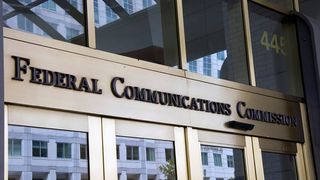ISPs: 'Net Doomsday Scenarios Are Off Base

ISPs are trying to assuage fears about the FCC's planned net neutrality rule rollback.
Broadband for America (BFA) , whose members include NCTA – The Internet & Television Association, CTIA – The Wireless Association, and USTelecom Association, issued a statement Thursday billed as ahead of next week's (Dec. 14) vote on the order.
But it also came ahead of planned protests around the country from groups that claim reclassifying ISPs as non-common carriers and eliminating the rules against blocking, throttling and paid prioritization means the death of the free and open internet.
"America’s broadband providers are 100% committed to a free and open internet and have always practiced net neutrality regardless of government regulations or rules because that is what their customers demand," the coalition said in a statement. "Additionally, all of the major providers have announced clear and strong policies ensuring no blocking, no throttling, and no unfair discrimination against lawful traffic online. It’s good business, good practice, and what internet users expect."
"Unfair discrimination" has become the preferred alternative to saying they will not engage in paid prioritization, which they may well engage in as a way to differentiate service or for other reasons. One argument is that it is in the consumer and public interest to allow a car company to pay to prioritize collision-avoidance info--in a world of connected cars--over streaming cat videos."
As to passions powering the planned Dec. 7 protests--Demand Progress says the number of such protests tops 700--the group said: “While we fully understand consumer interest in this issue, we also want to make clear that many false claims, wild accusations and doomsday scenarios circulating about the future of the internet are way off base and shouldn’t be taken at face value."
The ISPs say, echoing FCC chairman Ajit Pai--though it may be the other way around--that the vote will "simply restore the light touch regulation that governed the internet from its existence until public utility rules were imposed in 2015 and will not change the free and open internet experience we all value and expect.”
Broadcasting & Cable Newsletter
The smarter way to stay on top of broadcasting and cable industry. Sign up below
Pai's proposal, while eliminating most regs, would preserve and bolster transparency requirements, meaning ISPs would have to tell their customers and the FCC if they were blocking, throttling and prioritizing for pay, and what else they were doing. The Federal Trade Commission could then police that conduct under its unfair or deceptive practices authority, and the Justice Department would backstop any anticompetitive activity.
Related: ISP Groups Talk Net Neutrality Legislation
Contributing editor John Eggerton has been an editor and/or writer on media regulation, legislation and policy for over four decades, including covering the FCC, FTC, Congress, the major media trade associations, and the federal courts. In addition to Multichannel News and Broadcasting + Cable, his work has appeared in Radio World, TV Technology, TV Fax, This Week in Consumer Electronics, Variety and the Encyclopedia Britannica.

